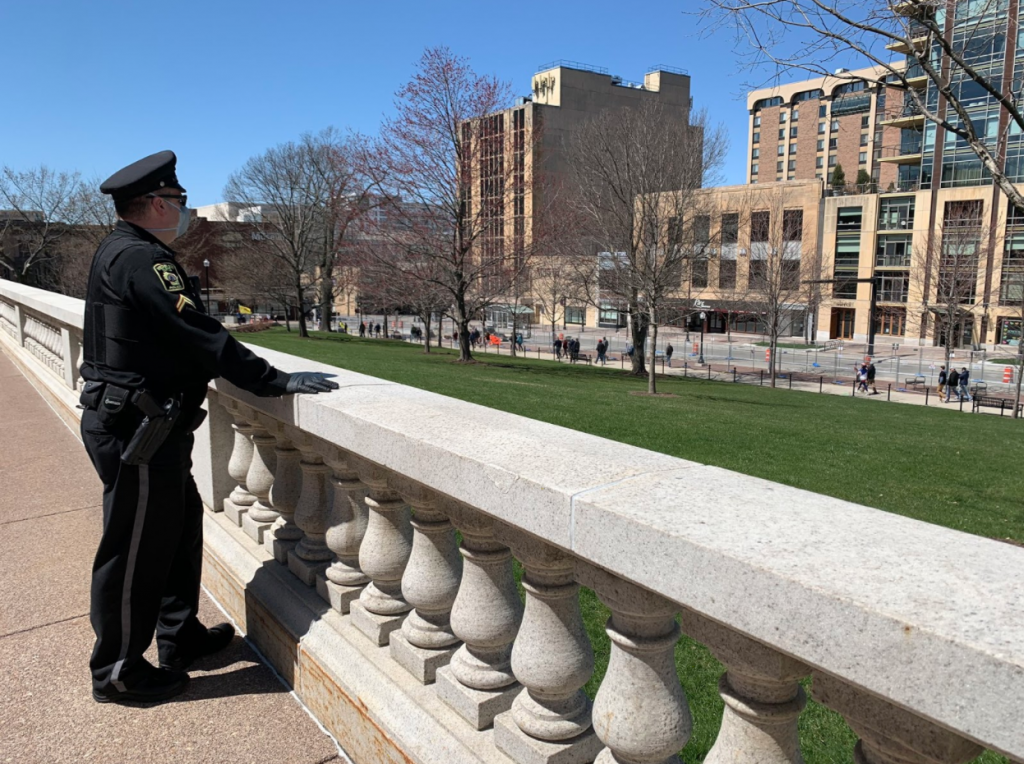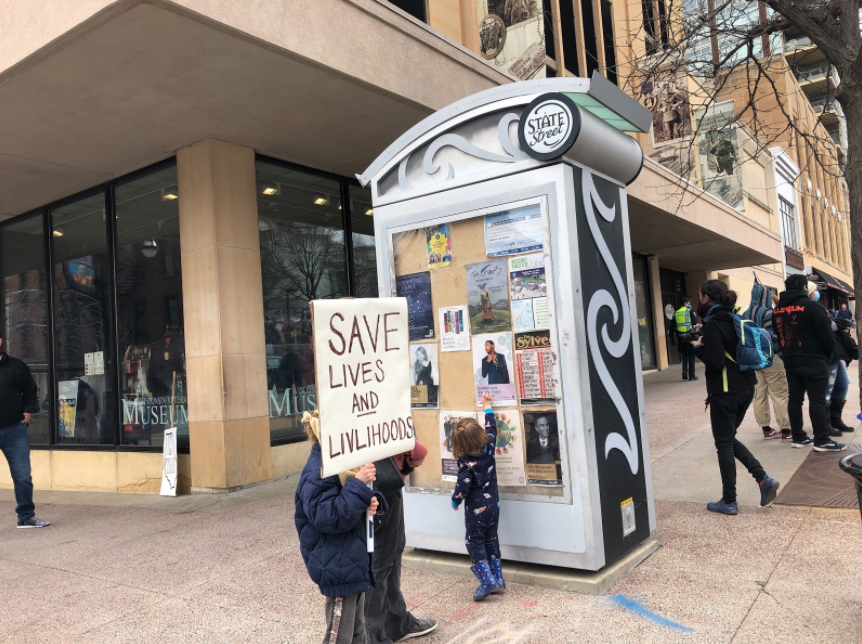Journalists working as essential workers to keep the public safe

Journalists have had to adapt to continue delivering critical news to the public while also staying safe during COVID-19 pandemic.
Reporters are chasing stories while never leaving their homes, and many are being furloughed for a period of time.
Molly Beck is the State House reporter for the Milwaukee Journal Sentinel, but she is no longer going to the capitol everyday and reports from her apartment in Madison.
Beck’s reporting on state politics has changed to be only relating to COVID-19.
“I think the biggest change in our reporting is that we are not covering anything but the Coronavirus story from different angles,” Beck said. “There is a presidential race happening right now, and you wouldn’t know it.”
Getting factual information about COVID-19 is essential for ensuring that the public can stay safe.
Beck said, “The value of newspapers have maybe never been greater. At least it feels that way right now.”
Carlos Gonzalez is a sports photographer for The Star Tribune in Minneapolis, Minnesota. His job has changed significantly with no sports happening for him to photograph.
“The safety concern is the biggest thing just for the people I’m covering, myself, and the concerns of just the further spread of the virus,” Gonzalez said.
Before sports seasons were cancelled or postponed Gonzalez had spent a month in Fort Myers, Florida covering the Twins’ spring training. The baseball team didn’t even get to start their season.
After returning to Minnesota in early March, Gonzalez’s reporting had to adjust.
“I did do a photo essay on the lack of sports in Minnesota,” Gonzalez said. “It was a broad range of what it’s like for there not being any sports.”
Gonzalez takes extra safety precautions when he goes to take photos, but feels like even with the necessary information about COVID-19 his responsibilities as a journalist have not changed.
“We basically have the same fundamentals as we always do. We’re trying to tell stories in the community,” Gonzalez said.
Briana Reilly is the Capital Times state politics reporter. She has also been reporting from her home in Madison.
“I have not been coping well, I think the problem is that with no clear distinction between work and non-work time every waking minute feels like working time,” Reilly said.
Unable to report how she normally does she has been fixating on her job and found that she is trying to get more information to the public faster than ever.
“It feels like I have not been able to stay off of my email or twitter or refrain from filing stories,” Reilly said. “The only identity we have right now is that of journalists because everything else in our life is in disarray.”
Beck has found herself in the same kind of work/life balance as Reilly.
“I’ve never worked this much in my life,” Beck said. “It’s easy to do because you’re just working from home so there is no natural end to the day.”
“This is like the busiest day I’ve ever covered times 10 and it’s every day,” Beck said.
The reporters feel that regardless of how their jobs have changed they still commit to it everyday and find that the public is appreciating the information.
All three newspapers have instituted a system requiring a period of unpaid furloughs for all reporters.
“Our ad revenue has completely fallen off a cliff because there isn’t anything to advertise right now,” Beck said. “If there isn’t any ad revenue we are going to be in trouble.”
Beck, at the Journal Sentinel, will be taking a week off without pay.
Reilly has already taken an unpaid week of furlough but has another upcoming week that she’ll take off.
The Capital Times’ policy is that “people are going on two weeks of unpaid furlough from last month through the end of the quarter,” Reilly said.
For Gonzalez at the Star Tribune, reporters are to take eight days of furlough over the next two quarters. Reporters are allowed to work with editors to allocate the days how they’d like.
“Basically a day a month for the foreseeable next months,” Gonzalez said.
For Beck and Reilly in Wisconsin, they were around the state reporting on the election on April 7. They took photos and observed the scenes from six feet away to keep safe.
“You just kind of have to put that out of your mind because you have to do your job and you can’t get paralyzed by fear,” Beck Said.
Gonzalez was in Grand Forks, ND covering an outbreak that is linked to the LM Wind Power factory.
“I wipe down all of my gear after coming out of assignment with clorox wipes, I’m washing hands, basically all the recommended things to not put myself or others in danger,” Gonzalez said.
Journalists are doing everything they can to make sure they are safe, their papers are safe and the public stays safe and informed.

